Publications

In Solidarity with Boğaziçi University
ATGENDER, The European Association for Gender Research, Education and Documentation, stands in solidarity with the students and faculty of Boğaziçi University, who have been protesting the appointment of a new rector Melih Bulu by the government. The new rector is not a member of Boğaziçi University, and his appointment without elections violates the established practice….
Read more
Volume 16: Homonationalism, Femonationalism and Ablenationalism Contextualised
We are happy to announce that the new volume of the Teaching with Gender book series, titled ‘Homonationalism, Femonationalism and Ablenationalism: Critical Pedagogies Contextualised’ (Routledge 2022) is out! Edited by Angeliki Sifaki, Christine Quinan and Katarina Lončarević, this edited volume engages with a range of geographical, political and cultural contexts to intervene in ongoing scholarly…
Read more
ATGENDER Report: Early Career Researchers in European Gender and Women’s Studies
We are delighted to announce the publication of Early Career Researchers in European Gender and Women’s Studies: Professional Challenges and Ways forward. The report is based on a survey conducted by ATGENDER’s Early Career Scholars Working Group. Co-authored by board member Stefanie Boulila and former ATGENDER interns, Jessica Cheung and Orsolya Lehotai, the report discusses…
Read more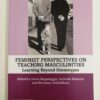
Volume 15: Feminist Perspectives on Teaching Masculinities: Learning Beyond Stereotypes
The newest book in our Teaching with Gender book series looks at teaching non-hegemonic forms of masculinities and highlights their diversity. The collection foregrounds and discusses concepts which are described and gathered as positive, caring and inclusive masculinities, thus offering a timely and much-needed counterpoint to discussions of so-called toxic masculinities. The volume presents a…
Read more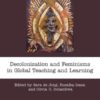
Volume 14: Decolonization and Feminisms in Global Teaching and Learning
We are happy to announce that the new volume of the Teaching with Gender book series, titled ‘Decolonization and Feminisms in Global Teaching and Learning’ (Routledge 2018) is out! Edited by Sara de Jong, Rosalba Icaza and Olivia U. Rutazibwa, it features 4 sections (Knowledge/Voice/Institutions/Disciplines), each one starting and ending with a manifesto. In between…
Read more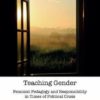
Volume 13: Teaching Gender. Feminist Pedagogy and Responsibility in Times of Political Crisis
Edited by Beatriz Revelles-Benavente and Ana M. González Ramos, Teaching Gender: Feminist Pedagogy and Responsibility in Times of Political Crisis (Routledge, 2017) addresses the neoliberalization of the university, what this means in real terms, and strategic pedagogical responses to teaching within this context across disciplines and region. Inspired by bell hooks’ “transgressive school” and Donna Haraway’s “responsibility”, this collection promotes…
Read more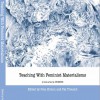
Volume 12: Teaching With Feminist Materialisms
As a growing and wide-spanning field of research, teaching, and collaboration, feminist materialisms are taking up increasing space in our pedagogical settings, especially in queer and feminist classrooms. Whether as a theoretical topic, as a methodological strategy for conducting research, or in developing learning tools, feminist materialisms work to foreground the complex forms of…
Read more
Volume 11: Teaching against Violence
Many international organizations denounce that the systematic lockout of women from social and political power is responsible for the phenomenon of double/multiple discrimination, so that in every social category, the status of women is always the lowest. This severe injustice is at the core of the situation of violence which still remains in the…
Read more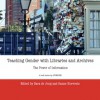
Volume 10: Teaching Gender with Libraries and Archives
Teaching Gender with Libraries and Archives: The Power of Information was conceived of as a pedagogical tool, aimed at stimulating gender studies teachers to critically reflect, together with their students, on libraries and archives as profoundly gendered knowledge spaces. Whilst feminist standpoint theory with its recognition that knowledge always emanates from and is produced within…
Read more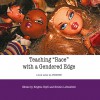
Volume 9: Teaching “Race” with a Gendered Edge
Teaching “Race” with a Gendered Edge responds to the need to approach the idea of race from a feminist perspective. This collection of essays aims to broaden our understanding of both race and gender by highlighting the intersections and intertwinedness of race, gender, and other axes of inequality. The book also points to…
Read more
